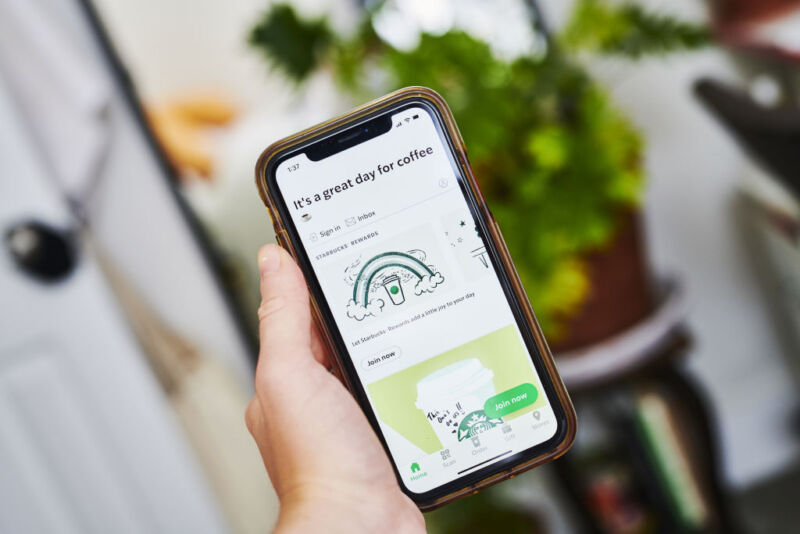
When you get a Starbucks gift card, or keep reloading one on your phone, you often end up with awkward amounts that can be difficult to spend.
For most people, the remainders are a few bucks of wasted potential caffeine and sugar. For Starbucks, they are worth hundreds of millions of dollars each year, according to a consumer advocacy group in Washington state that wants to end the “Gift Card Loophole.” Changes in the coffee giant’s home state could affect gift and loyalty cards nationwide.
The Washington Consumer Protection Coalition (which notes that its top funding contributor is the Service Employees International Union) is pushing state legislators to remove a provision dating back to 2004. While that 2004 legislation was relatively consumer-friendly for its time by barring gift cards from fully expiring and eliminating maintenance fees, it allowed funds left on cards, or now on mobile apps, to be claimed as revenue by companies.
Under proposed legislation backed by the WCPC, those funds would instead go to the unclaimed property division of the Washington Department of Revenue. Before that happens, other reforms would allow for cashing out small amounts left on gift cards (by combining them with cash for payment, for example), requiring companies to inform customers of unspent funds before they are diverted, and potentially removing minimum “reload” amounts on phone apps. Customers could still spend their old funds after they are diverted, with the state reimbursing the card-issuing company.
The reforms are aimed at larger corporations, like Washington state’s Starbucks, and would exempt businesses that generate less than $25 million in annual revenue. Making these changes would generate roughly $250 million per year for the state, according to the WCPC, though it’s unclear if that means residents or the state itself.
Along with Starbucks, which sells billions of dollars in gift cards every year, Washington is home to outdoor retailer REI and department store Nordstrom. Costco, based in Washington state, is exempt from the proposed legislation because customers have to spend at least $50 on memberships and have “a direct and ongoing relationship” with the company.
More than 70 percent of Fortune 500 companies are required to transfer unspent gift balances to unclaimed property programs in the states where they incorporate, according to the WCPC and legislators, including Amazon and Walmart. Starbucks claimed $215 million in unspent gift card revenue in its 2023 fiscal year, according to its filing with the Securities and Exchange Commission. The WCPC claims the firm kept $894 million in the last five years.
A spokesperson for the Washington Hospitality Association said in a statement that there “is no loophole in Washington law” regarding gift cards and claimed that the proposed legislation would make it more difficult for gift card holders to use their balances.
“The existing law where gift cards are forever redeemable is good for consumers; this proposal to limit the time when gift cards can be redeemed and then claim unspent balances as state revenue will likely prove to be equally as unpopular with consumers as current law is popular,” the statement said.
A spokesperson for Starbucks noted that more than one in six American adults are gifted a Starbucks gift card each year. They, too, noted that Starbucks cards have no expiration.
Starbucks’ rewards programs, centered on the regular use of digital cards, are crucial to its revenue. During a Q4 2021 earnings call, executives said that more than 50 percent of company-owned stores’ revenues were generated by customers who had earned or used rewards points in the last 90 days. The company expected nearly $3 billion in funds to be loaded onto Starbucks cards that holiday season.
This post was updated at 3:45 pm ET on January 5 to note the WCPC’s top sponsor, add context to a claim of state revenue, and add statements from spokespeople for both Starbucks and the Washington Hospitality Association.
https://arstechnica.com/?p=1993919

